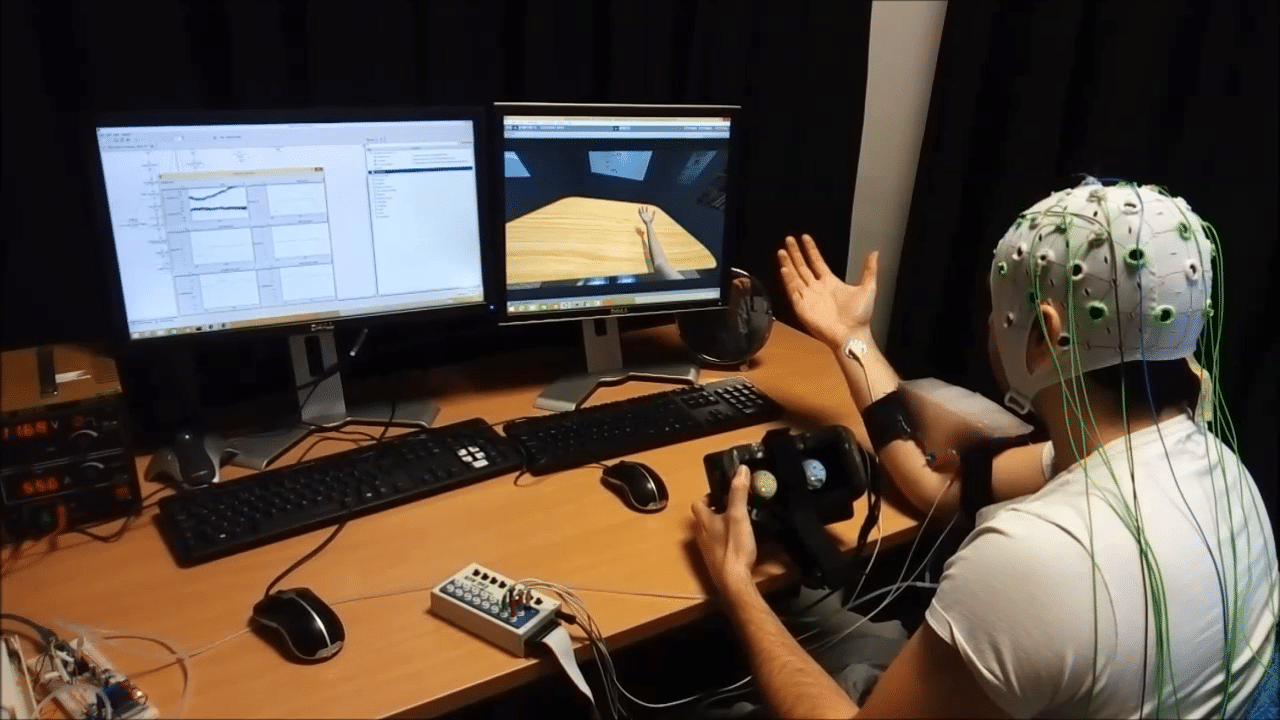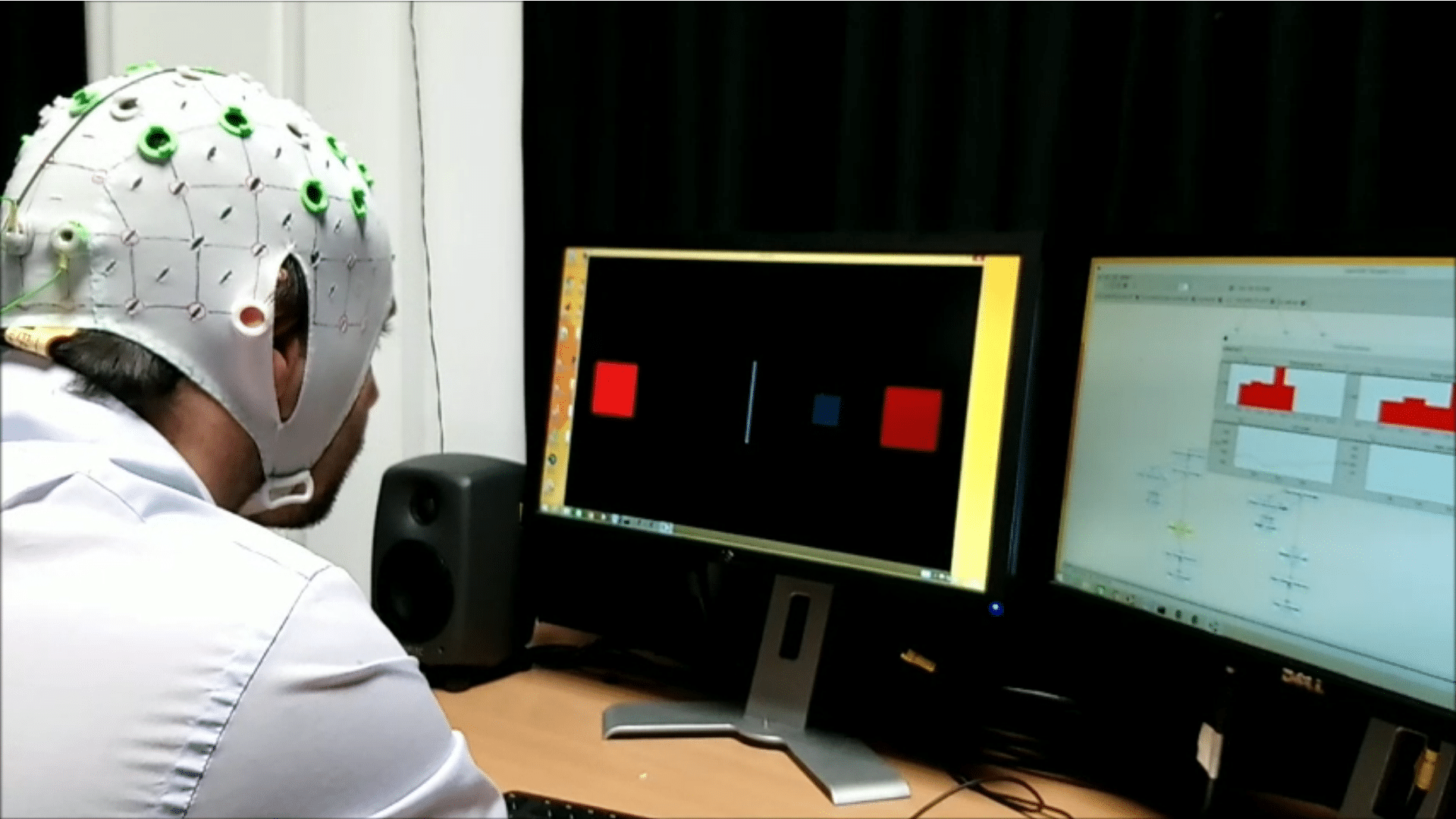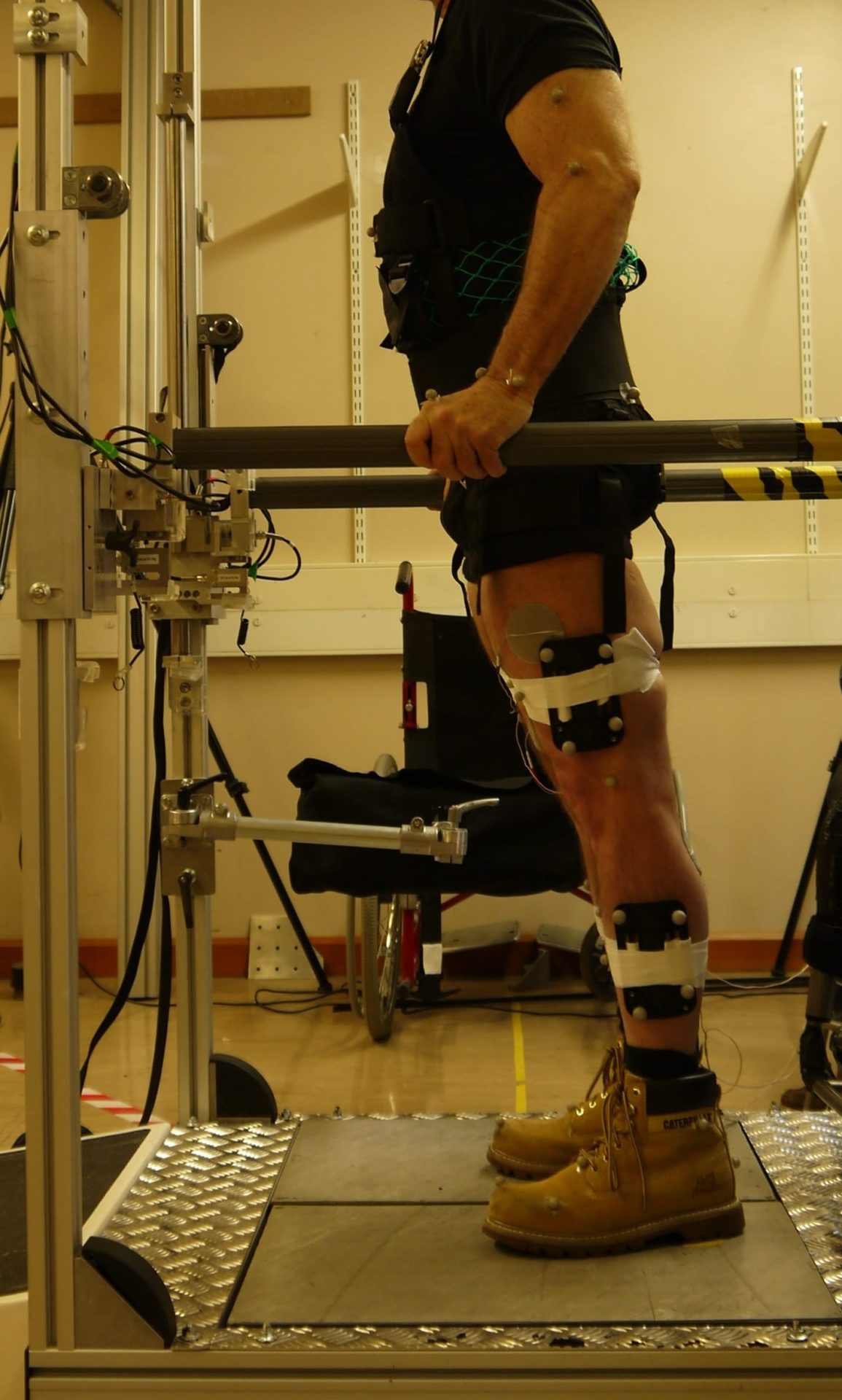
Physiology News Magazine
Focussed Symposium: From Lab to Clinic – Pathways to Translational Brain Machine Interfaces for Rehabilitation
Events
Focussed Symposium: From Lab to Clinic – Pathways to Translational Brain Machine Interfaces for Rehabilitation
Events
Ioannis D Zoulias & Orla Fannon, University of Reading, Berkshire, UK
https://doi.org/10.36866/pn.111.18
7 September 2018, University of Reading, Reading, UK

The development of brain-machine interfaces (BMIs) has been accelerating over the last decade due to the exciting possibilities these technologies present. Recent breakthroughs in BMIs, complemented by technologies such as virtual reality, robotics and functional electrical stimulation, have provided very promising results for rehabilitation, and the recovery of function and motor control after accident or illness.
Despite these promising results, the use of BMI technologies is primarily confined to the laboratory environment, with limited clinical use. Some of the reasons for this are the variation in physiological differences from person to person, the divergent needs of people with disabilities, poor accessibility and usability of BMI techniques for clinicians, and the difficulty in forging new collaborations between BMI researchers and clinicians.
This symposium aims to streamline the translation of BMIs, developed by researchers, into clinical interventions. Joined by clinical experts and academics who have successfully translated their BMIs to the clinic, participants will discuss pathways available for researchers to advance their BMI research to a clinical setting.
Emphasis will be placed on encouraging early career researchers’ progression in
this field; building new collaborations and bridging the gap in knowledge to facilitate the clinical transfer of research are especially important early in a research career.
Early career researchers will also have an opportunity to present their work (through oral communications or a poster presentation) and, crucially, glean relevant advice from experts on how to transfer their specific research to the clinical environment.
A panel discussion comprising researchers, clinicians and members of funding bodies will address questions directly from the audience. To encourage audience participation, the panel will address pre-submitted questions from delegates, as well as questions posed in the session, either directly or through Twitter. At the end of the symposium, further networking opportunities will be available during a wine reception with all speakers and delegates.

The symposium will cover a variety of topics in BMI research, with applications to the rehabilitation of motion (e.g. stroke or spinal cord injury), prosthetics, BMIs for affecting psychological conditions and BMIs for enabling communication (e.g. BMI spellers).
The keynote talks will focus on high impact international BMI clinical research, obtaining novel physiological insights through clinical BMI investigation, and understanding the clinical and patient perspective when designing novel BMI ideas and forging clinical collaborations.
Miguel Nicolelis (Duke University, USA) a pioneer in the field of BMI, will discuss his experience in numerous clinical BMI studies. Of particular interest are his laboratory’s recent breakthrough findings on restoring function in people with complete spinal cord injuries through a BMI complemented by virtual reality and a robotic exoskeleton. Using this novel hybrid system in patients with paraplegia resulted in an unprecedented recovery of motion.
Dario Farina (Imperial College, UK) will present his ground-breaking research in applications of BMIs using robotic prosthetics and will outline the opportunity for obtaining insights into brain physiology through clinical research using BMI and neuromodulation.
The clinical viewpoint will be presented by Claire Guy (Rookwood Hospital, UK). Claire will be giving her views from decades of experience in physiotherapy and neurorehabilitation (spinal cord injuries, MS, stroke and others) and her own involvement in research projects.
This meeting aims to foster new collaborations between clinicians and researchers at the early stages of BMI development. We expect the formation of long-lasting collaborations and a subsequent increase in clinical trials and adoption of BMIs in clinics. This topic is highly relevant in today’s physiological research landscape, as a critical mass of research on BMIs for rehabilitation is likely to revolutionise the outcome of currently debilitating conditions and to provide unique insights into the physiology of neural mechanisms.

